- What is B2C in ecommerce?
- The Best Products To Sell in b2c ecommerce are
- Why are digital products are best suited for b2c ecommerce?
- Why is the model b2c in ecommerce profitable for Sellers?
- B2C is a type of ecommerce that stands for
- What are b2c ecommerce examples?
- B2C ECommerce Example Websites
- B2C Examples in ECommerce
- What is b2c ecommerce business model?
- Benefits of b2c ecommerce business model
- What are b2c ecommerce platforms?
- What are B2C ecommerce companies?
- What is b2c ecommerce software?
- What are b2c ecommerce solutions in Online Business?
- FAQ
What is B2C in ecommerce?
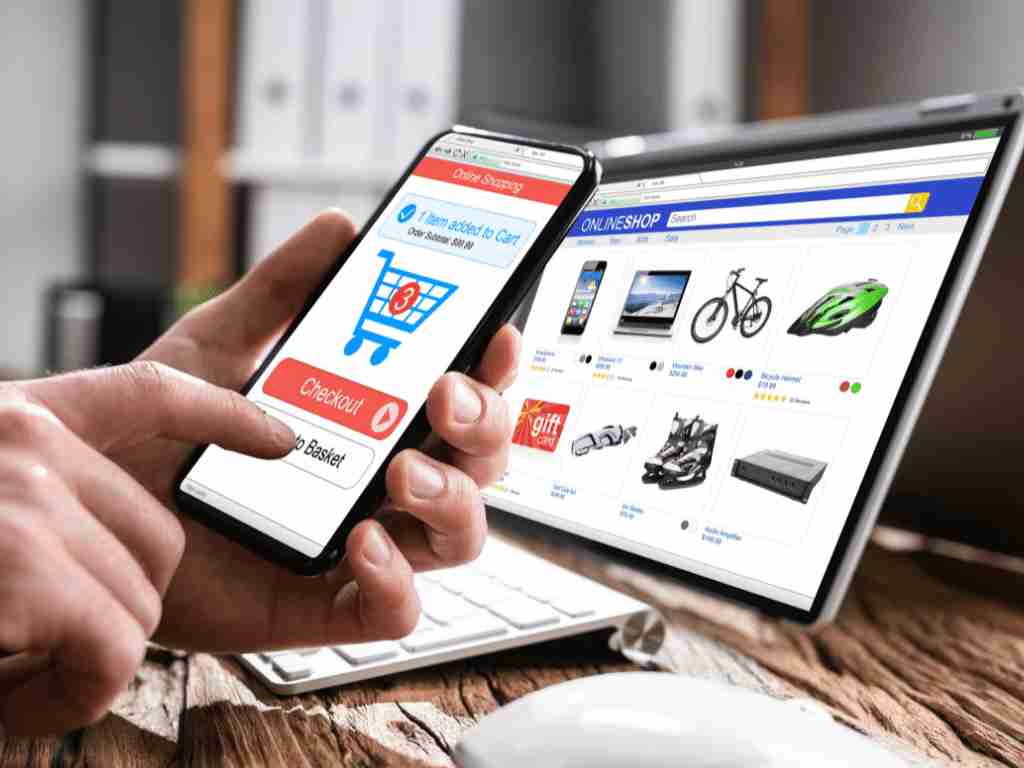
B2c ecommerce is a type of online shopping where businesses sell products and services to customers without having to deal with the hassle of manufacturing or shipping products.
This type of retailing is growing in popularity because it allows businesses to reach a larger audience than they would be able to through their traditional storefronts, as well as take advantage of the potential for increased sales through targeted marketing.
There are a few key differences between b2b and b2c ecommerce that should be taken into account when planning your business online presence.
First and foremost, b2b ecommerce involves selling goods or services to other businesses, while b2c ecommerce refers to sales conducted by individual consumers. Additionally, b2b commerce typically involves higher transaction costs than b2c commerce, which may impact profitability.
Finally, while both types of commerce involve selling digital products or services, b2b transactions usually involve more interactions between buyers and sellers than do b2c transactions.
B2C and B2B are two different types of ecommerce. B2C ecommerce refers to transactions between businesses and consumers, while B2B ecommerce refers to transactions between businesses.
The main difference between these two types of ecommerce is that B2C ecommerce is usually cheaper than B2B ecommerce.
There are a few reasons why b2c ecommerce is so popular. First, b2c ecommerce allows you to reach a wide range of customers. This means that you can find customers who will be interested in your products.
B2C ecommerce allows you to easily sell your products online. This can help you to increase your profits.
The Best Products To Sell in b2c ecommerce are
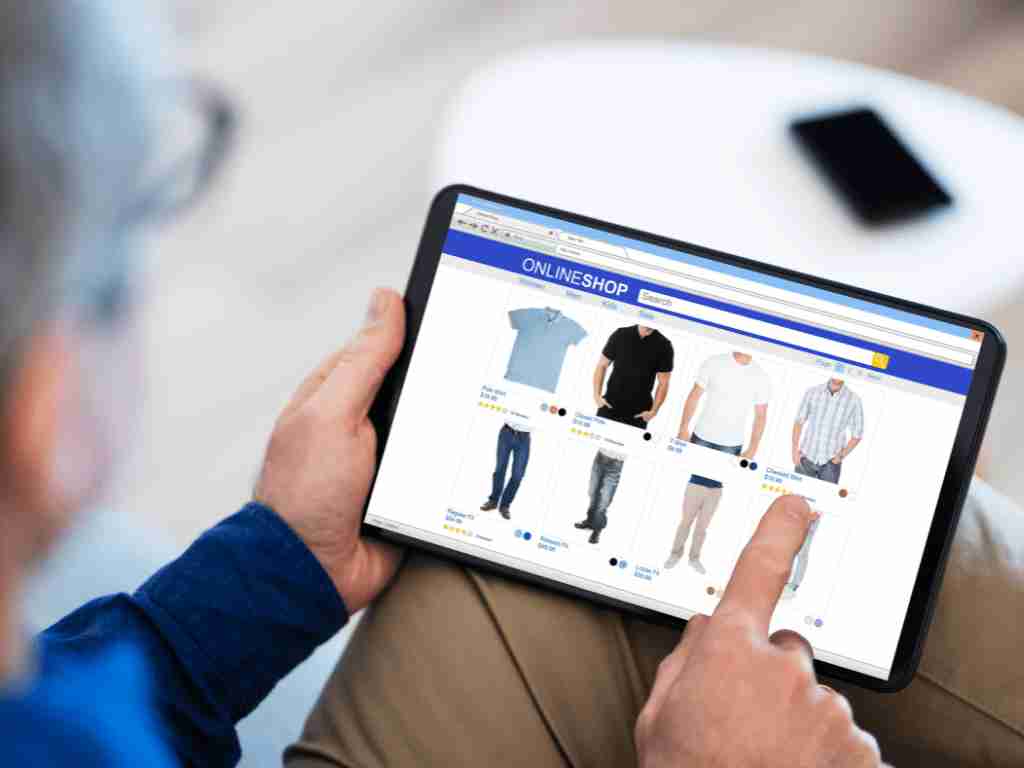
1. Smartphones
2. Tablets
3. Laptops
4. Clothes
5. Furniture
6. Home decor
7. Beauty products
8. Technology products
9. Food and drinks
10. Books and music
There are a few things to keep in mind when selling products in b2c ecommerce. First, it’s important to find the right products. If you’re selling items that are difficult or expensive to ship, your sales will be lower.
You’ll need to find a way to get your products in front of customers. This can be done through search engine optimization (SEO) or paid advertising.
Finally, make sure you have a good marketing strategy in place so that you can keep customers coming back.
Understanding the differences between b2b and b2c commerce is important for anyone selling products online.
If you’re not sure which type of commerce is best for your business, talk to an ecommerce consultant. They can help you understand the ins and outs of both types of commerce and give you the tools you need to succeed in ecommerce.
Why are digital products are best suited for b2c ecommerce?
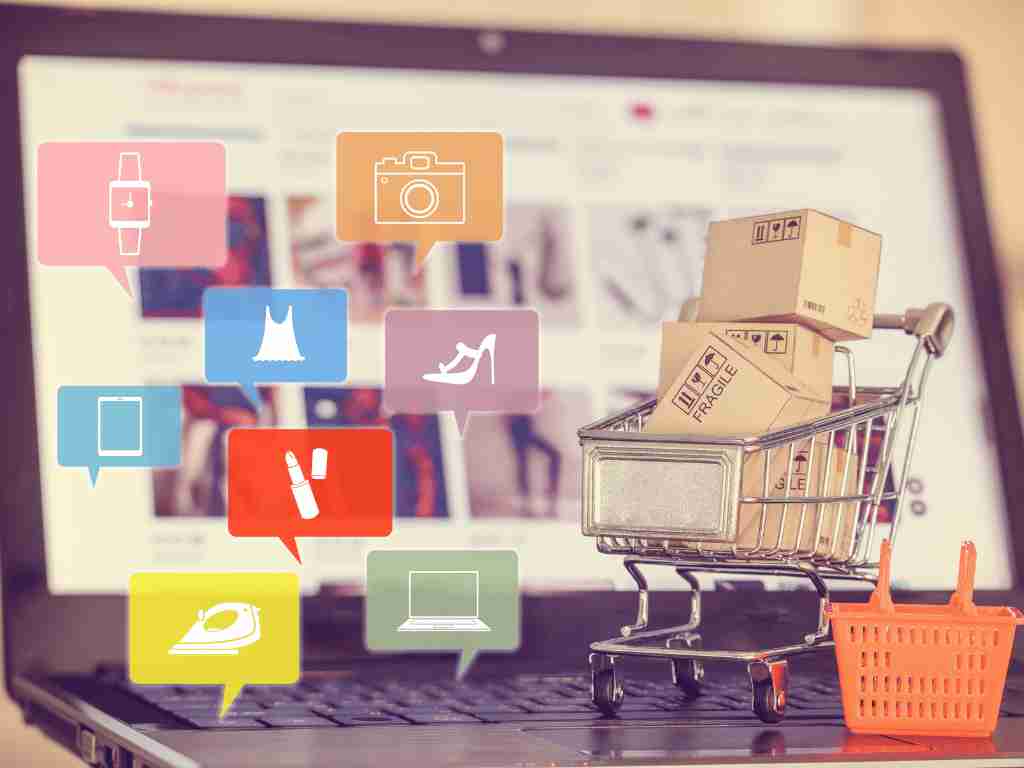
Digital products are perfect for b2c ecommerce because they can be customized to the customer’s needs and they are easily accessible. This makes them a popular choice for customers who want to buy items that are specific to their needs.
Additionally, digital products can be delivered quickly and easily, which is why they are popular among consumers who want to buy items on the go.
There are a number of reasons why b2c ecommerce is the best option for your business.
It is the most popular type of commerce and there are more than two billion customers engaging in it every month. b2c ecommerce allows you to reach a wide range of customers, which means that you can find customers who will be interested in your products.
Finally, b2c ecommerce allows you to easily sell your products online, which can help you to increase your profits.
1. Digital products can be delivered instantly
Digital products can be delivered instantly with an email or chat communication. This is a big benefit for ecommerce businesses as customers can purchase items without having to wait for them to be shipped.
It can help to increase sales as customers are more likely to make a purchase if they know that it will be delivered immediately.
2. Digital products usually cheaper than physical products
Digital products usually cost less than physical products. This is because digital products can be made in a matter of minutes, whereas it can take weeks or even months to produce a physical product.
Additionally, digital products don’t require shipping and handling costs, which can add up quickly.
3. Digital products have a wider range of products to choose from
Digital products are becoming more and more diverse as the industry grows. With so many different products to choose from, potential customers have more options than ever when looking for a product.
This makes it easier for them to find the right product and makes buying online easier for them.
4. You can buy Digital products from anywhere in the world
Digital products can be bought from anywhere in the world, making them a versatile and popular choice for consumers.
This flexibility makes digital products an excellent choice for businesses of all sizes, as they can reach a global market quickly and easily.
Businesses that sell digital products can benefit from increased revenue and lower costs associated with online sales.
5. Digital products are more eco-friendly
There is a growing trend in the digital age of choosing eco-friendly products. Digital products are typically more eco-friendly because they do not require the use of packaging and shipping.
With ecommerce, there are many ways to reduce the amount of waste that is created when an order is shipped.
One way to reduce waste is to use recycled paper materials when creating advertisements or product descriptions. By using these methods, businesses can help reduce the amount of waste that goes into landfills.
6. Digital products are easy to recommend
Digital products are easy to recommend to friends. There are many reasons why this is the case.
Firstly, digital products can be easily accessed from any device. Secondly, they can be delivered quickly and cheaply, making them an attractive proposition for consumers. And finally, they often come with warranties and support systems, ensuring that buyers feel confident in their purchase.
All of which makes digital products a popular choice for a range of businesses, from small independent operators to multinational conglomerates.
Why is the model b2c in ecommerce profitable for Sellers?
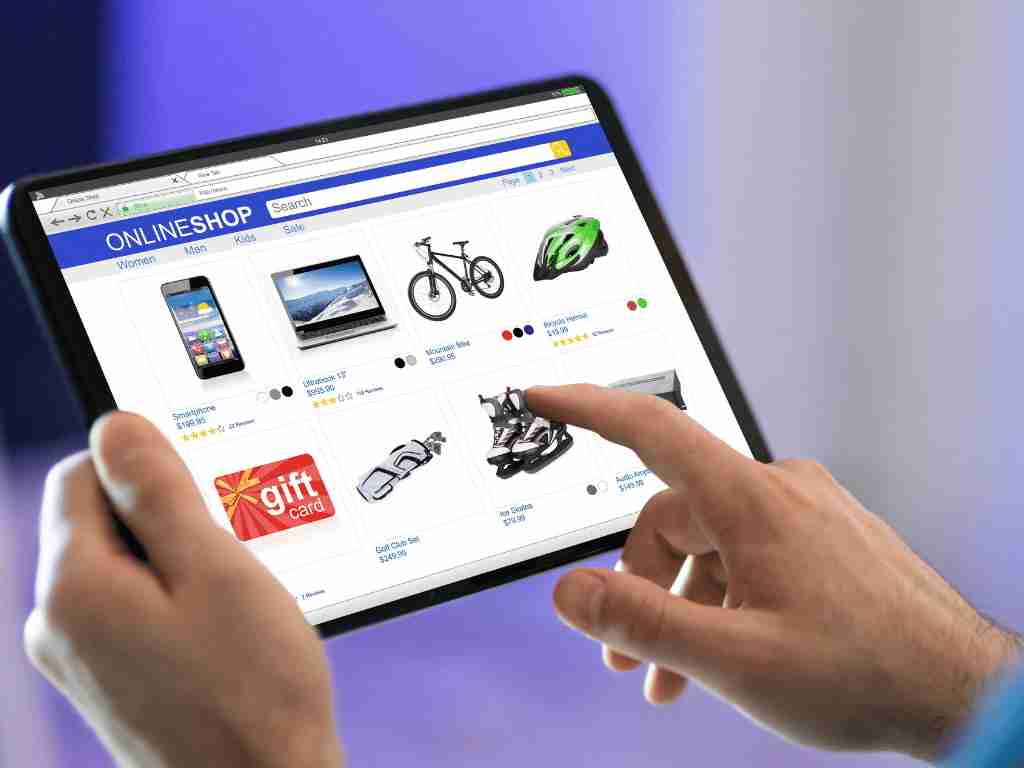
The model of selling goods and services through the internet, known as b2c, is enormously profitable for online sellers.
This is because there are a number of advantages to selling through the internet that make it an attractive option for businesses of all sizes.
One major advantage is that there are no shipping or handling costs associated with b2c sales. This means that online sellers can earn a higher profit margin on their products than they would if they sold directly to consumers.
b2c sales allow businesses to reach a much wider audience than they would be able to if they only sold to customers in their local area.
Finally, b2c sales allow businesses to track the success of their marketing campaigns more easily than traditional retail sales do.
First things first, before we can discuss anything else about b2c ecommerce, we need to get clear on what these terms really mean!
Generally speaking, B2B means “business-to-business” – meaning that businesses sell their products or services to other businesses (rather than consumers).
B2C means “business-to-consumer” – meaning that consumers buy products or services from businesses (rather than other businesses).
Which type of ecommerce do you run? Well, it depends on the specifics of your business!
But broadly speaking, most businesses opt for B2B over B2C due to the wider appeal and deeper pockets of larger companies although there’s no wrong answer here!
B2C is a type of ecommerce that stands for
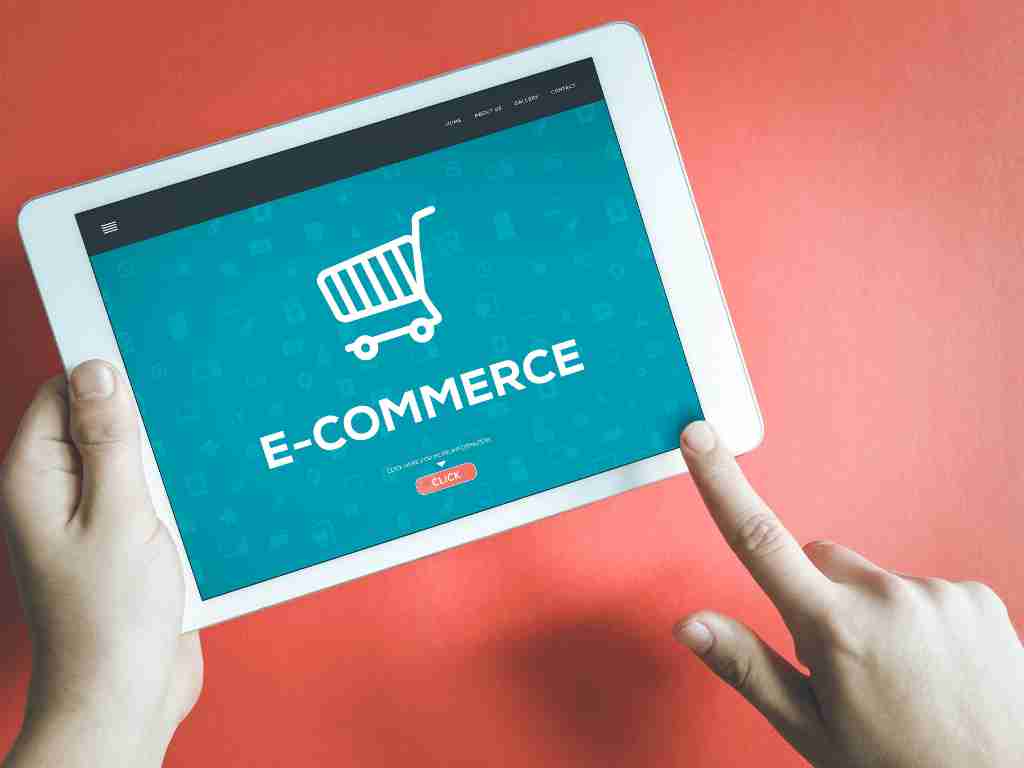
B2c is a type of ecommerce that stands for business to consumer. This type of e commerce involves businesses selling physical or digital products and services directly to consumers online.
This is different from B2B, which refers to businesses selling products or services to other businesses.
There are a few key reasons why you might want to consider a b2c ecommerce model for your business. First, it’s a great way to reach a larger audience. With a b2c ecommerce site, you can sell to customers all over the world.
A b2c ecommerce model can help you build brand loyalty. Customers who purchase from your site will be more likely to come back and purchase from you again in the future.
Finally, a b2c ecommerce site can help you generate repeat business. Customers who are satisfied with their purchase are likely to tell their friends and family about your site, which can help you attract even more customers.
What are b2c ecommerce examples?

Common b2c ecommerce examples include online shopping, booking hotel rooms, ordering food delivery, and making payments online. B2C ecommerce can also involve selling products or services through a company’s own website or app, as well as through third-party websites or apps.
1. Start an Online store that sells products related to fashion
When starting an online store that sells products related to fashion, it is important to think about the target audience. For example, if your store is geared towards women, you should consider targeting female shoppers. Similarly, if your store sells clothing for men, you should target male shoppers.
It is important to think about the type of product you are selling. For example, if you are selling clothing items such as shirts and dresses, you may want to focus on selling high-quality garments that will last.
it is important to think about your pricing strategy. For example, if you are charging higher prices for luxury items than for lower-priced items, you may want to focus on high-end customers.
Finally, it is important to create a compelling website that will attract customers from all over the world.
B2C ecommerce platforms are a great way to sell products related to fashion. They allow customers to browse through a variety of products, compare prices, and make a purchase.
This type of online store can be especially beneficial for businesses that want to reach a wider audience.
B2C ecommerce platforms also allow businesses to sell products directly to customers. This approach can be particularly helpful for businesses that want to increase sales.
2. Start an Online store that sells products related to home improvement
There are many reasons why people might want to start an online store that sells products related to home improvement.
Maybe you’re a contractor or home improvement enthusiast who wants to offer your services to the public, or maybe you just want to sell products that you know and love.
Whatever the reason, setting up an online store is a great way to get started and make money.
To get started, think about what kind of products you would like to sell. If you’re a contractor, for example, consider selling tools and supplies related to your trade. If you’re a DIY enthusiast, consider selling items like paint swatches or door hinges.
Once you have an idea of what types of products you would like to sell, it’s time to find a platform on which to launch your store. There are many options available, including eBay and Amazon Web Services (AWS).
Once you decide on a platform, it’s time to create your store front page. This page will serve as the main entry point for customers visiting your online store.
3. Start an Online store that sells products related to pets
Pets are a big part of American culture, and there is a growing market for pet-related products. If you’re thinking of starting an online store that specializes in selling pet-related products, there are a few things to consider.
First, you’ll need to decide what kind of products you want to sell. You could sell items related to feeding, housing, training, and more. Secondly, you’ll need to find a platform on which to sell your products.
There are many popular ecommerce platforms available, so it’s important to choose one that will fit your needs and target audience.
Finally, it’s important to market your store effectively. You can use various methods such as social media marketing, online advertising campaigns, and PR initiatives.
If you take these steps and put in the hard work, an online store focused on selling pet-related products can be successful.
4. Start an Online store that sells products related to electronic gadgets
As a business owner, it is important to keep up with the latest trends in the market. One trend that is growing in popularity and has even started to spread into the mainstream is electronic gadget sales.
If you are looking to start an online store that specializes in selling electronic gadgets, there are many things that you need to take into account.
One of the first things that you will want to do is research which products are selling well on the internet and figure out what type of customers are interested in buying them.
You can use market research tools like Google Trends or Yahoo! Shopping to see what keywords are being searched for most frequently and how often they are being used.
Once you have a good idea of what products your customers want and what keywords they might be using, it is time to start building your online store.
One of the best ways to attract customers is by offering a great customer service experience. Make sure that all of your contact information is easily accessible so that your customers can reach you when they have questions or problems with their purchase.
Additionally, make sure that your online store has easy-to-use checkout procedures and provides helpful instructions on how to use your products
5. Start an Online store that sells products related to health and wellness
There is a growing trend of people looking to purchase products related to health and wellness. With this in mind, it makes sense to start an online store that specializes in this area.
This store could sell products related to fitness, diet, and health supplements. Additionally, the store could offer educational resources about these topics.
B2C ECommerce Example Websites
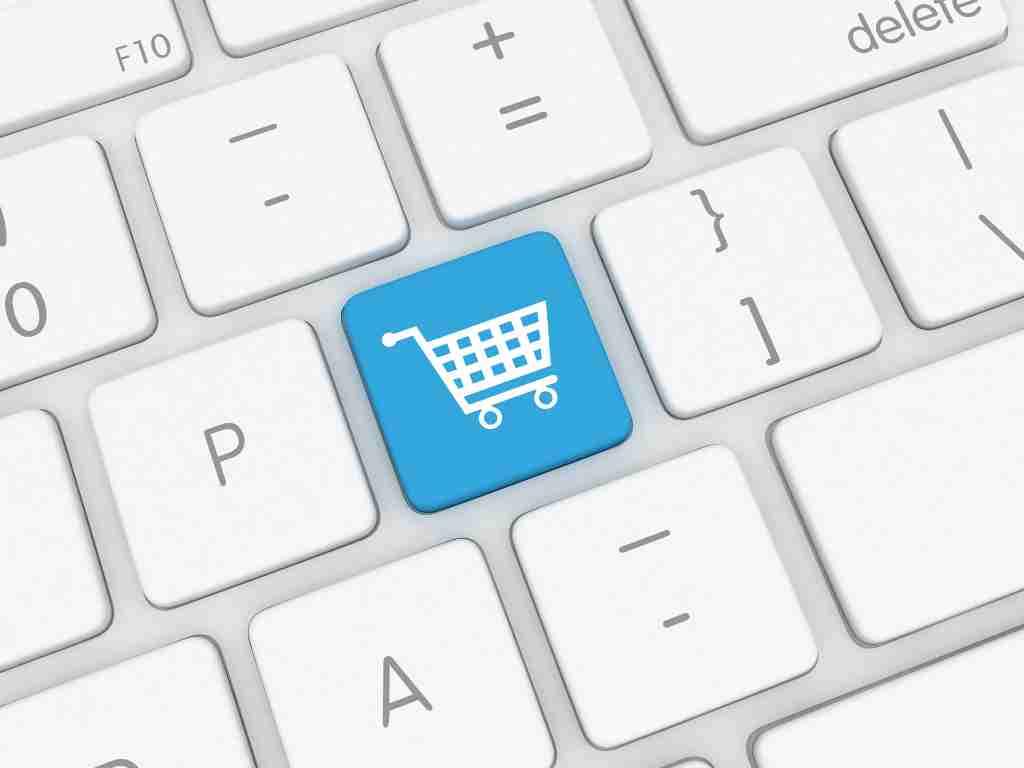
1. Shopify for b2c ecommerce sellers
Shopify is a popular platform for b2c ecommerce sellers. It has a wide range of features to help you manage your business, from product management to payment processing.
Plus, Shopify makes it easy to create an online store without any coding required. If you’re looking for a platform that can handle all the details of running your business, Shopify is a great choice.
2. Etsy for b2c ecommerce sellers
Etsy is a great platform for b2c ecommerce sellers because it offers an easy way to sell online with a large selection of products.
Sellers can create an Etsy shop and list their products for sale, and then manage their sales and shipping through the site. Etsy also offers sellers the ability to earn commission on sales, which can help increase profits.
3. Amazon for b2c ecommerce sellers
The Amazon marketplace is the largest online store in the world, with over two billion products available to purchase. This makes it an ideal platform for b2c ecommerce sellers.
First, Amazon offers a wide variety of products and options for buyers. Second, Amazon’s customer service is second to none. If something goes wrong with a purchase, buyers can contact customer service for help resolving the issue.
This ensures that buyers always have a positive experience when shopping on Amazon.
4. eBay for b2c ecommerce sellers
eBay is the world’s largest online marketplace, with more than 125 million active buyers and sellers. As a b2c ecommerce seller, you can sell just about anything on eBay – from clothes to cars to furniture.
There are many great eBay selling tips available, such as creating an effective listing and marketing your item. If you’re new to eBay, be sure to check out the eBay for Beginners guide.
5. Google Shopping for b2c ecommerce sellers
Google Shopping is a powerful tool for both small and large business owners who sell online. It allows businesses to easily find potential customers, as well as compare prices and product information.
It can provide businesses with a better understanding of their competition, which can help them to make better decisions when planning their marketing strategy.
B2C Examples in ECommerce
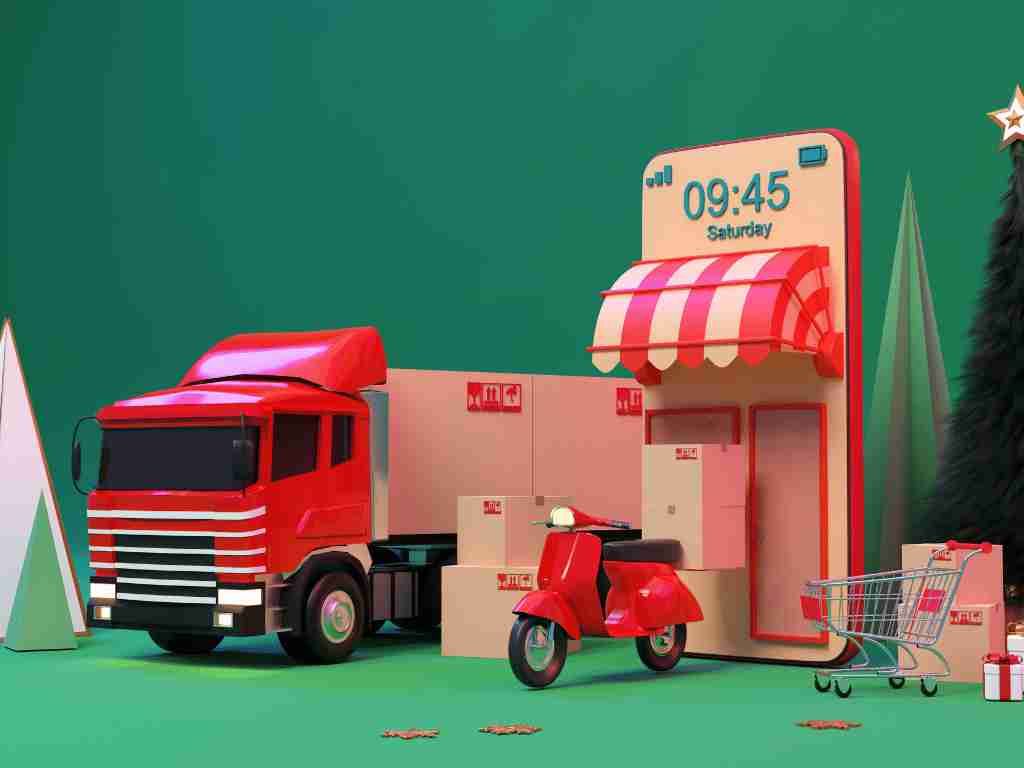
There are countless B2C ecommerce examples out there, including major companies such as Amazon and Walmart, as well as smaller businesses like Etsy and Warby Parker.
Each company has developed its own unique approach to online sales, resulting in a wide variety of successful products and services.
Whether you’re looking for a traditional online retailer like Amazon or something more niche like Etsy, there’s sure to be a B2C ecommerce example that’s right for you. So whatever your business goals may be, don’t hesitate to give b2c ecommerce a try!
What is b2c ecommerce business model?
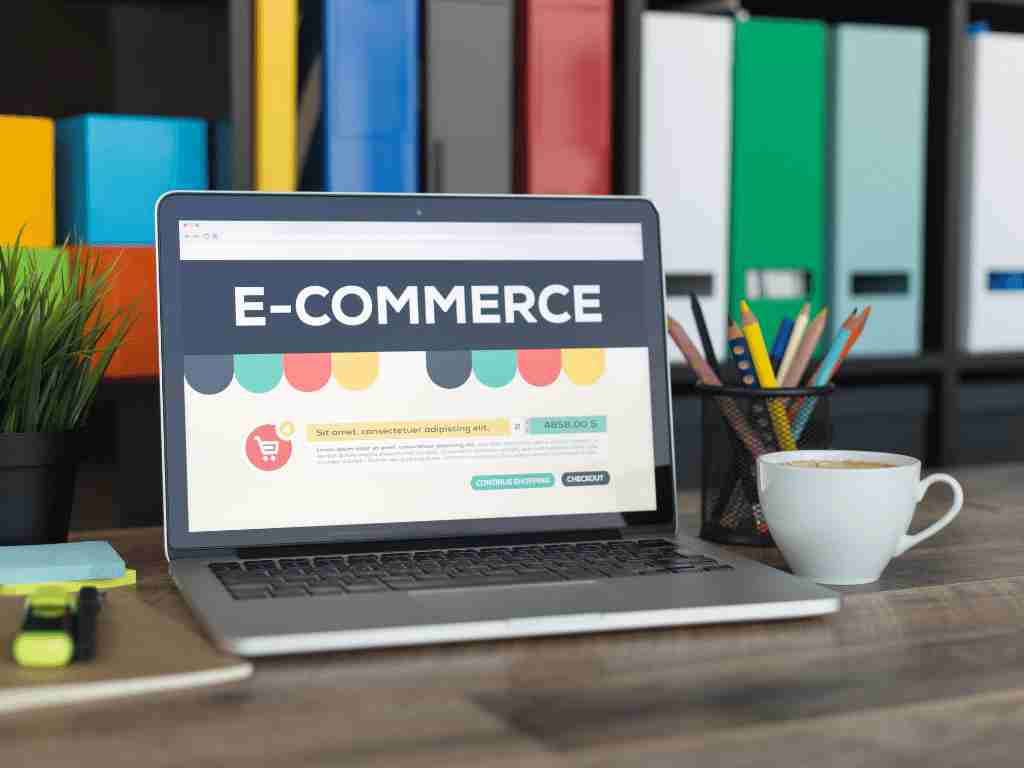
The b2c ecommerce business model is one in which a company sells products and services to consumers over the internet, typically through a website.
This type of business differs from a traditional business model, in which companies sell products and services to consumers through brick-and-mortar stores.
The b2c ecommerce business model is often more profitable because it allows companies to sell products and services directly to consumers.
Benefits of b2c ecommerce business model
1. Increased Profits with large number of b2c customers
B2C ecommerce has seen a significant increase in profits over the past few years, with new players such as Amazon and Alibaba entering the market.
The increased demand for online services has driven up prices and generated a larger pool of customers. This has resulted in increased profits for companies that are able to tap into these markets.
2. Flexible Scheduling of your online store
A big part of running a successful online store is making sure that the schedule is flexible to accommodate customer needs. This can be difficult if your store is scheduled according to a traditional 9-5 workday.
There are various methods for managing your online store’s schedule that make it easier for you and your customers.
One option is to have an online chat window open 24×7 so that customers can ask questions and receive help. You could also create an online FAQ section where customers can find answers to common questions.
Additionally, you could make it possible for customers to order items on a same-day basis or even have them delivered right to their door!
With these options, you’ll be able to provide the best service possible while still adhering to your business schedule.
3. Reduced Overhead Costs in b2c stores
There are many benefits to running a business in the digital age, one of which is the reduced overhead costs that come with operating a business online. For example, there is no need for expensive rent or office space, and there is no need for employees to commute.
Businesses can reach a wider audience more easily than ever before with online platforms.
In terms of b2c ecommerce stores specifically, these costs can include website design and development, hosting and domain fees, marketing expenditures such as Google AdWords or Facebook advertising, shipping costs, and taxes.
All of these factors can be vital in determining the profitability of a business online.
By understanding these overheads and working to reduce them where possible, businesses can save money both now and in the long run.
4. Quick Response to Customer Needs
In today’s fast paced, ever-changing world, it is essential for businesses to be able to respond quickly and effectively to customer needs.
This becomes even more important in the B2C (business to customer) realm, where customers are typically more impatient and have a higher expectation of quality service.
There are a number of ways that businesses can improve their response time. First, they can make sure that all communication channels are open and that everyone is aware of what is happening.
They need to have robust systems in place for tracking and managing customer complaints.
They need to make sure that the quality of their products and services meets or exceeds the expectations of their customers.
5. Greater Control of Your Business
The benefits of using ecommerce to run your business are clear. You have greater control over your business, from the products you sell to the way you market them.
This means you can make decisions based on what’s best for your company, not someone else’s agenda. Plus, with ecommerce tools and platforms available today, it’s easy to get started and reach a wide audience.
So why wait? Get started today and see how ecommerce can help your business thrive!
6. Enhanced Branding and Marketing Opportunities
B2C ecommerce platforms offer businesses enhanced branding and marketing opportunities.
With the ability to personalize products for each customer, businesses can create a sense of connection with customers that can be difficult to achieve through other methods such as television or print advertisements.
B2C ecommerce platforms often allow businesses to track customer behaviour in order to determine which products are most popular and subsequently develop marketing campaigns around these products.
By using these tools, businesses can increase sales and build a loyal following.
7. Increased Customer Loyalty
When customers are loyal to a business, it can lead to increased sales and overall success. Loyalty programs can help businesses cultivate this loyalty by rewarding customers for their patronage.
By rewarding customers for their past actions, businesses can create a sense of community within the customer base.
This sense of community can lead to increased sales as customers feel more invested in the company and want to see it succeed.
In addition, loyalty programs can also help businesses build trust with their customers. Trust is key when conducting business transactions, and a loyal customer base will feel more trusting of a business when they know they are being rewarded for their past actions.
8. Improved Customer Service with Large Number of Customers
One of the major benefits of having a large number of customers is that companies can improve their customer service.
This is because there is a higher volume of complaints and queries that can be addressed quickly. In addition, with a larger customer base, companies are also able to develop better marketing strategies that target these customers.
9. Reduced Inventory Risk with Large Volume of Purchases
Another advantage of having a large number of customers is that it reduces the risk of excess inventory.
This is because companies do not have to order as much in advance in order to meet demand. This results in lower storage costs and shorter delivery times, which are crucial for companies that operate online.
10. Develop Better Strategic Planning Skills for B2C Ecommerce Businesses
To be successful in the b 2 c ecommerce market, businesses must have good strategic planning skills.
This means being able to identify market trends and analyze data in order to make informed decisions about product launches and marketing strategies.
It also means being able to understand customer needs and demands so that products can be developed accordingly.
How is b2c ecommerce model profitable?
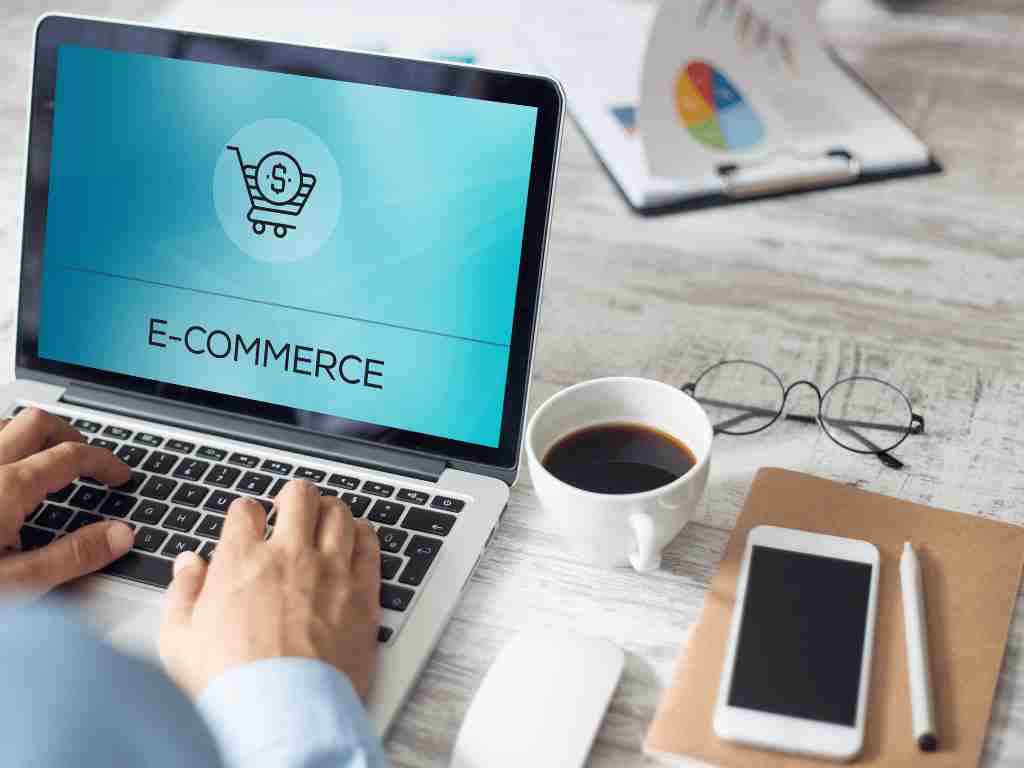
B2c ecommerce business model is profitable because the business sells products or services to consumers directly through an online store.
The business does not need to invest in brick-and-mortar stores, which can be expensive. b2c ecommerce business model is also convenient for consumers because they can shop from the comfort of their own homes.
What are b2c ecommerce platforms?
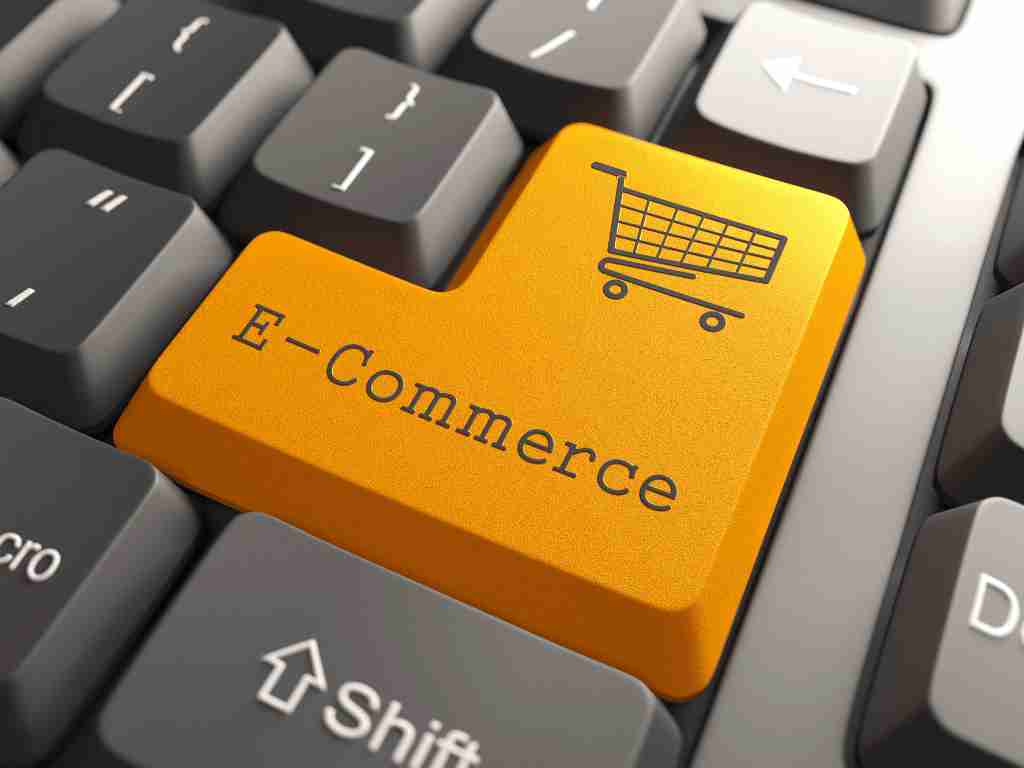
When people think of ecommerce, they often think of the big, national chains like Amazon and Walmart. But there are a growing number of small businesses that are using b2c (business to consumer) ecommerce platforms to sell their products.
B2C ecommerce platforms allow small businesses to sell their products directly to customers online. These platforms provide a wide range of features, including dedicated sales teams, marketing tools, and shipping options.
Many b2c ecommerce platforms also offer customer support and training programs so businesses can learn how to use the platform effectively. This can help them increase sales and reach new customers.
B2C ecommerce platforms are the most popular way for small businesses to sell their products online. These platforms allow businesses to create a storefront, manage their inventory, and take payments from customers.
They also offer features such as customer service, shipping tracking, and payment processing.
B2C ecommerce platforms can be very productive for small businesses, especially if they have a good product and good customer service. They can help businesses build a loyal following, attract new customers, and generate more sales.
The world of ecommerce is constantly evolving, and businesses must adapt to stay competitive. B2C ecommerce platforms offer many benefits that can help businesses grow and succeed.
There are many benefits of b2c ecommerce platforms. The most obvious benefit is that they provide a convenient way for customers to purchase products and services online. But there are other benefits as well.
B2c ecommerce platforms can help businesses to reach a wider audience. They can also help to build brand awareness and to generate leads. And, because customers can purchase products and services at any time of day or night, businesses can make sales around the clock.
What are B2C ecommerce companies?

B2C ecommerce companies are businesses that focus on selling products and services to consumers online. These companies typically use websites and apps to market and sell their products, though they may also operate physical stores.
B2C ecommerce companies can be small businesses or large corporations, but all of them rely on online sales to generate the majority of their revenue.
B2C ecommerce is growing faster than any other form of retailing, and it is expected to account for more than 50% of all retail sales.
This growth is due in part to the increasing number of people who shop online rather than in stores, as well as the increasing number of countries in which online shopping is legal.
B2C ecommerce companies must be able to create high-quality websites that are easy to navigate and use customer-friendly tools such as chatbots and AI software to help customers find what they’re looking for.
The best B2C ecommerce companies includes
1. Amazon
2. eBay
3. Alibaba
4. Rakuten
5. Flipkart
6. Etsy
7. Snapdeal
8. Shopify
9. BigCommerce
10. Magento
What are b2c ecommerce website for Online business and purchasing products?

A b2c ecommerce website is a website that is used for purchasing products or services from a company. Customers can browse through the products or services, place an order, and receive the product or service.
B2c ecommerce websites can be used for any type of business, including online businesses and small businesses. Online businesses use b2c ecommerce websites to sell products and services online.
Small businesses use b2c ecommerce websites to sell products and services to customers who are not also customers of the small business.
There are two types of b2c ecommerce websites. A global host and self-hosted. Hosted b2c ecommerce websites are websites that are hosted by a company. The company charges a fee for hosting the website.
Self-hosted b2c ecommerce websites are websites that are registered and hosted by the business. The business pays for the registration and hosting costs.
An online store is a website that is used to sell products and services to customers. An e-commerce platform is a website that is used to manage the sales process and inventory of products.
An e-marketing platform is a website that is used to promote products and services to customers.
When most people think about commerce, they think about shopping in stores or buying items online. But what if we told you there was another way? Ecommerce, or “electronic commerce”, refers to buying or selling goods or services online.
While it may seem like just another way to buy things online, there’s actually quite a bit going on with b2c ecommerce.
What is b2c ecommerce market size?

The b2c ecommerce market is estimated to be worth $2.5 trillion, and it’s growing rapidly. There are a variety of reasons for this, including the increasing popularity of online shopping and the growth of mobile commerce.
B2C ecommerce platforms cater to businesses of all sizes, from small businesses with just a few customers to multinational companies with millions of followers.
These platforms provide businesses with everything from a simple way to sell products online to complete solutions that include marketing, branding, and customer service.
There are a number of well-known b2c ecommerce platforms, including Amazon, eBay, Alibaba Group, and Rakuten Inc. These platforms offer different features and benefits depending on the company’s needs and budget.
Some companies opt for smaller platforms that are more nimble and responsive than larger options and others choose more comprehensive solutions that provide greater flexibility and control over their business operations.
What is b2c ecommerce software?
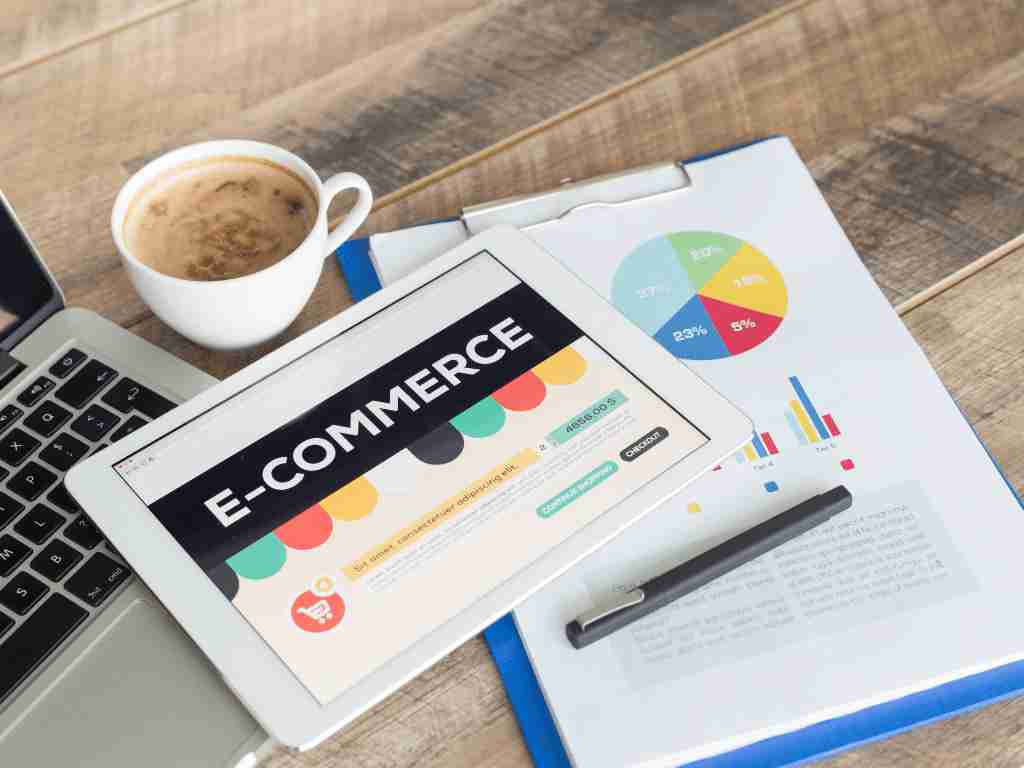
B2C ecommerce software is a type of software that helps businesses sell products and services through the internet. These programs can be used to create online stores, manage customer relationships, and generate sales leads.
B2C ecommerce software can also help businesses track sales and inventory, create marketing campaigns, and analyze customer data.
B2B and B2C are two terms used to describe different types of business models in ecommerce. B2B refers to businesses that sell products and services to other businesses.
These businesses typically use a b2c ecommerce platform to handle all the customer interactions, including sales, marketing, and inventory management.
B2C refers to businesses that sell products and services directly to consumers. These companies use a b2b ecommerce platform to handle all the customer interactions, but they also have their own sales team.
There are several key differences between b2b and b2c ecommerce platforms.
While both types of platforms can offer competitive prices on products, b2c ecommerce platforms often have wider product lines that include additional services or features not available on b2b ecommerce platforms.
b2c platforms tend to offer more features than b2b platforms when it comes to managing customer relationships and generating sales leads. They can also be more versatile when it comes to marketing campaigns and tracking sales analytics .
Large businesses typically use a combination of both types of platforms while smaller businesses may only use b2c technology.
Both types of technologies can help businesses manage customer relationships online but b2c e-commerce platforms often provide greater flexibility when it comes to allowing customers access to products or services.
What are b2c ecommerce solutions in Online Business?

B2C ecommerce solutions are those that enable a business to conduct its commerce operations through the internet. This could mean anything from selling products and services online, to managing customer accounts, to delivering goods directly to customers’ doorsteps.
There are a number of different b2c ecommerce solutions available on the market, each with its own advantages and disadvantages.
Some of the most popular options include websites built using web-based platforms like WordPress or Shopify, online marketplaces like eBay and Amazon, and custom built ecommerce platforms specifically designed for businesses.
The main advantage of using a b2c ecommerce solution is that it can open up the business to a wider range of potential customers. Not only can businesses sell their products online, but they can also offer services such as customer support, training videos, and product reviews.
This makes b2c ecommerce solutions ideal for businesses with a wide range of products and services.
b2c ecommerce solutions have several limitations that must be taken into account when choosing them. First, these platforms are not always easy to use or navigate, so some businesses may find them difficult to manage.
b2c ecommerce solutions are not as diverse as b2b ecommerce solutions, so businesses may find it difficult to find products that meet their needs.
b2c ecommerce solutions are not always as competitively priced as b2b ecommerce solutions, so businesses may find it difficult to compete against larger companies.
Understanding the differences between b2b and b2c ecommerce is essential for businesses planning to adopt either type of solution.
While both types of ecommerce platforms have their advantages and limitations, b2b ecommerce solutions are typically more diverse and competitively priced.
If a business only needs to sell products online, a b2c ecommerce solution may be the best option. However, if a business wants to offer additional services or products, a b2c ecommerce platform may not be the best choice.
FAQ
B2C ecommerce is online shopping from businesses to customers. It usually involves buying products and services from online retailers, but can also include online auctions, order taking, and electronic funds transfer.
Some common b2c ecommerce examples include online shopping platforms, such as Amazon and eBay, as well as online food delivery services, such as zomato and Swiggy.
B2C ecommerce is when a business sells products or services to consumers through an online platform. A few examples of B2C ecommerce businesses are Amazon, Walmart, and Flipkart.
In a business-to-consumer (B2C) ecommerce business model, a company sells products and services directly to consumers through an online platform. This type of ecommerce model is the most common, and most companies that sell online use a B2C business model.
B2C ecommerce platforms are designed for businesses selling products or services to consumers. These platforms typically offer features such as a shopping cart, product catalog, order management, and payment processing.
B2C ecommerce companies are businesses that allow customers to purchase products or services online. These companies typically have an online store that is accessible to anyone with an internet connection. Customers can browse the store and purchase items without having to interact with a salesperson.
B2C ecommerce websites are online platforms where businesses can sell their products directly to consumers. These websites are typically designed to be user-friendly and easy to navigate, with an emphasis on providing a smooth and efficient purchasing process. Common features of B2C ecommerce websites include online shopping carts, customer account login areas, and order tracking functionality.
The b2c ecommerce market size is the total value of all goods and services sold via B2C ecommerce channels in a given period of time. This figure can be measured in terms of revenue, gross merchandise value (GMV), or other metric.
The business-to-consumer (B2C) model is defined as a commercial transaction between a business and a consumer. Typically, B2C transactions are final and completed online between an e-commerce vendor and an individual consumer.
There are many different ways to scale b2c ecommerce sales. Some common methods include expanding your product offerings, increasing your marketing efforts, and improving your website’s conversion rate.
To scale b2c ecommerce sales worldwide, businesses need to focus on creating a strong online presence, optimizing their website for search engines, and building customer trust through positive reviews and customer service. Additionally, businesses should consider selling through online marketplaces and global ecommerce platforms to reach a wider audience.
B2C ecommerce software is software that enables businesses to sell products and services online. This type of software typically includes a shopping cart, payment processing, order management, and shipping functionality. Some popular B2C ecommerce software platforms include Shopify, Magento, and WooCommerce.
The best b2c ecommerce solution for a business will vary depending on the specific needs and goals of that business. Some common b2c ecommerce solutions include online storefronts, shopping carts, order management systems, and payment processing platforms.
The following are some common b2c ecommerce trends:
1. More and more businesses are selling online
2. Many businesses are using social media to drive traffic to their online store
3. There is a trend towards businesses offering more personalized shopping experiences
4. Some businesses are using AI to provide more personalized recommendations to shoppers
5. There is a trend towards businesses offering more flexible shipping and delivery options
B2C ecommerce development is the development of online platforms that allow businesses to sell their products and services directly to consumers. This type of development typically involves the creation of an online store or website that is easy to use and navigate, and that offers a wide range of payment options.
The best products to sell in b2c ecommerce are those that are high quality and in demand by consumers. Products that are popular among consumers and have a high demand are typically the best selling products in b2c ecommerce.
Digital products are best suited for B2C ecommerce because they are easy to search for, easy to find, and easy to purchase. In addition, digital products can be easily customized to fit the needs of individual customers.
B2C ecommerce is ecommerce between businesses and consumers. Businesses can be either sellers or service providers, and consumers can be either individuals or organizations. The transactions can be for goods, services, or both.
Business-to-business (b2b) ecommerce refers to transactions between businesses, such as between a manufacturer and a wholesaler, or between a wholesaler and a retailer. Business-to-consumer (b2c) ecommerce refers to transactions between businesses and consumers, such as between a retailer and an individual customer.
B2C ecommerce has a number of advantages over other types of ecommerce. Perhaps the most obvious advantage is that it is much easier to set up and manage a B2C ecommerce store than it is to set up and manage a B2B ecommerce store. This is because B2C ecommerce stores do not need to deal with the complexities of managing inventory, quotes, and orders that are typically associated with B2B ecommerce.
There are many reasons why digital products are best suited for b2c ecommerce.
1. Digital products are easy to find and purchase online.
2. Digital products can be delivered instantly, which is convenient for customers.
3. Digital products can be easily shared with friends and family, which can increase word-of-mouth marketing for businesses.
4. Digital products are often cheaper than physical products, which can attract more customers.
5. Digital products are more likely to be returnable or refundable than physical products, which can increase customer satisfaction.
B2B eCommerce is often more profitable than B2C eCommerce because B2B buyers are typically more informed and motivated to purchase than B2C buyers. Additionally, B2B eCommerce transactions are generally higher in value than B2C eCommerce transactions.
The b2c ecommerce size is the number of businesses that are involved in b2c ecommerce. This includes both online and offline businesses. The size of the b2c ecommerce market is estimated to be around $9 trillion.
There are a few key things that you can do in order to help increase your sales. Firstly, it is important to make sure that your website is available in multiple languages. This will allow you to reach a wider audience and make it easier for customers from all over the world to purchase your products. Secondly, you should consider using a platform like Shopify which will give you the ability to sell your products in multiple currencies. This will again help you to reach a wider audience and make it easier for customers to purchase your products. Lastly, it is important to make sure that your shipping options are suitable for customers from all over the world.
For a business-to-consumer (b2c) ecommerce platform, the best options are Shopify, BigCommerce, and WooCommerce. These platforms offer a variety of features, including templates, payment processing, shipping integration, and customer support. Shopify is the most popular platform, with over half a million businesses using the platform. BigCommerce is the second most popular b2c ecommerce platform, and WooCommerce is the third most popular.
B2B ecommerce platforms provide a marketplace for businesses to buy and sell products and services. Businesses can set up their own store on the platform, or they can browse the platform for products and services they are interested in. B2C ecommerce platforms provide a marketplace for consumers to buy and sell products and services. Consumers can set up their own store on the platform, or they can browse the platform for products and services they are interested in.
Some objectives of b2c ecommerce would be to make the buying process as efficient and convenient as possible for the customer, while also providing a wide selection of products and services to choose from. Additionally, b2c ecommerce businesses would aim to create a brand that is trustworthy and recognizable, so that customers feel comfortable making purchases and returning in the future.
Ecommerce B2C stands for Business to Consumer and refers to the online sale of goods and services from businesses to consumers. This is in contrast to B2B, which stands for Business to Business, which refers to online transactions between businesses. B2C ecommerce is the most common type of ecommerce, as it includes transactions between businesses and individual consumers.
There are a few key ways in which B2C ecommerce is profitable. B2C ecommerce businesses have lower costs than traditional brick-and-mortar businesses. This is because they do not need to invest in physical storefronts, staff, or inventory. B2C ecommerce businesses can reach a wider audience than brick-and-mortar businesses, as they are not limited by geographical location. B2C ecommerce businesses can offer customers a more personalized shopping experience than traditional businesses, which can result in increased customer loyalty and higher conversion rates.
B2C commerce, or business-to-consumer commerce, refers to the transactions that take place between a business and a consumer. This can include online transactions, brick-and-mortar sales, or any other exchange of goods or services. B2C commerce is distinct from B2B commerce, or business-to-business commerce, which refers to transactions between businesses.
There are many examples of b2c ecommerce businesses. Some notable examples include Amazon, flipkart, paytm, meesho, myntra, eBay, and Etsy. These businesses allow consumers to purchase goods and services online without having to visit a physical store.
B2C ecommerce stands for business-to-consumer ecommerce. This type of ecommerce involves businesses selling products and services directly to consumers with the internet medium.
Some examples of B2C commerce include online retailers such as Amazon, flipkart, meesho, nykaa, eBay, and Etsy and brick-and-mortar retailers such as Walmart and Target.
B2C e-commerce refers to electronic commerce between businesses and consumers, typically involving the sale of goods and services over the internet. A good example of a B2C e-commerce transaction would be someone buying a product from an online retailer.
The examples of b2c commerce include Amazon, flipkart, meesho, nykaa, myntra, etc. for online shopping and businesses.
An example of b2c commerce include Amazon, myntra, meesho, paytm, etc.
An ecommerce b2c business models focuses on large audience with high profit margins which is completely different from b2b ecommerce model.
The B2C commerce examples in india include Amazon India, flipkart, paytm, meesho, etc. These ecommerce websites are having a large number of audience for online shopping.
There are several advantages of b2c ecommerce. First, it is convenient for consumers since they can shop online without having to leave their homes. Second, it offers a wider selection of products and services than traditional brick-and-mortar stores. Third, it is typically less expensive than purchasing goods and services from a physical store. Finally, it is available 24 hours a day, 7 days a week.
B2C is an ecommerce industry term that stands for business-to-consumer. This type of ecommerce refers to businesses or organizations selling products or services directly to large customers.
B2C Commerce Cloud Salesforce is a cloud-based eCommerce platform that enables businesses to create online stores and sell products and services to customers. It offers a wide range of features and tools to help businesses build and manage their online stores, including a drag-and-drop site builder, shopping cart, product catalog, order management, and sales and marketing automation.
The advantages of b2c ecommerce are that businesses can reach a larger market more easily and at a lower cost than with traditional brick-and-mortar storefronts. Customers can shop at any time of day or night from the convenience of their homes. In addition, businesses can offer a wider selection of goods and services online than they can in a physical store.
The disadvantages of b2c ecommerce are that businesses may have difficulty building customer trust and loyalty online, and customers may be less likely to make impulse purchases. In addition, businesses may find it difficult to stand out in a large and competitive online marketplace.
Salesforce B2C Commerce Cloud Documentation refers to the online documentation provided by Salesforce for its B2C Commerce Cloud product. This documentation includes guides, tutorials, and reference material for developers and administrators.
Salesforce B2C Commerce Cloud is a solution that helps businesses manage their customer relationships and transactions. It provides tools for managing customer profiles, orders, payments, and shipping. It also includes features for managing customer service, fraud prevention, and marketing.
B2C, or business-to-consumer, is the most common type of ecommerce. In a B2C transaction, a business sells a product or service to an individual consumer. C2C, or consumer-to-consumer, is a type of ecommerce where individuals sell products or services to other individuals. Usually, this takes place through an online marketplace, like eBay. B2B, or business-to-business, is a type of ecommerce where businesses sell products or services to other businesses. This is the least common type of ecommerce.
The b to c ecommerce consist of large number of buyers which are buying products in limited quantity. These audiences are found mostly on Amazon, flipkart, Paytm, etc.
B2C Commerce Cloud is a cloud-based e-commerce platform designed for businesses that sell products and services directly to consumers. It offers a range of features and tools to help businesses create and manage their online stores, including product catalogs, shopping carts, order management, and customer relationship management (CRM) capabilities.
B2C Commerce Cloud Documentation is a guide that provides detailed instructions on how to use the features and functions of the Salesforce B2C Commerce Cloud. It also includes information on how to set up and configure the cloud, as well as troubleshooting tips and best practices.
B2C ecommerce companies are businesses that sell products or services to consumers through an online platform. These platforms can be either directly through a company website or through a marketplace such as Amazon, eBay, or Alibaba. B2C ecommerce is a rapidly growing industry, with worldwide sales expected to reach $8 trillion.
B2C ecommerce diagram is a graph that shows the relationships between different types of businesses and consumers in the context of ecommerce. It can be used to visualize how businesses interact with each other and with consumers, in order to better understand the ecommerce ecosystem.
The b2b, b2c, c2c, and e commerce roles are all types of business models that involve the exchange of goods and services between businesses or between a business and a consumer.
The advantages of B2C eCommerce for consumers are that they can shop online from the comfort of their homes, compare prices easily, and find the best deals. The disadvantages of B2C eCommerce for consumers are that they may be charged for shipping and handling, and they may have to wait a few days for their purchase to arrive.
B2C e-business is business conducted over the Internet between companies and consumers, without the involvement of a third-party. Businesses can sell products and services directly to consumers, and consumers can purchase items without going through a middleman. B2C e-businesses are typically set up as online stores, where consumers can browse through a company’s products and make purchases.
E commerce b2b b2c c2c are all types of e commerce businesses. B2B is business to business, B2C is business to consumer, and C2C is consumer to consumer.
B2B and B2C stand for business-to-business and business-to-consumer, respectively. Woocommerce is a popular ecommerce platform that allows businesses to set up online stores. B2B and B2C websites are simply ecommerce websites that cater to either businesses or consumers.
Ecommerce consumer b2c are individuals who purchase goods and services online for their own personal use.
B2C e-commerce businesses are those that sell directly to consumers. Some examples include online retailers, such as Amazon, and digital content providers, such as iTunes.

